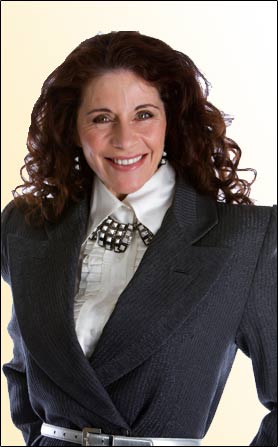This past weekend, Denver got one of its classic early spring snows. My part of town, which is close to the foothills, was snowing and the roads sheer black ice. I’d signed up to attend an animal communication class which was located fully an hour from my house out on the plains, so I packed up very early, two hours ahead of schedule. However, my world was dangerously icy.
So icy, in fact, that I ended up sliding through a stop sign and slamming into a snowy embankment, hurting my neck and back. I was just lucky that no cross traffic was out that early.
After I got my car out and inched home in the snow, I repeatedly called the school. No answer. I called the instructor twice, and finally reached her. She informed me that according to her, the weather was “brilliant, the roads green,and everyone ELSE was going to be there.” Not only did this completely dismiss my accident, it was shaming.
That annoyed me, and despite being injured I still attempted to make it to class. I took three sheets of instructions, left when the sun finally cleared our roads (about 11 am or so). As it happened, my Google instructions got me lost. At 1 pm I called the school again, no answer. I called the instructor again, no answer. I gave up and went home- and had to lie down. I was in bed all day Sunday.
I requested a cancellation due to the circumstances. I also cancelled a week long program in May. Both programs had a very rigid cancellation policy. What followed was fascinating.
Her partner, penned me a lengthy email informing me of the instructor’s intention to be kind, how much trouble she went to in order to change the curriculum for me so that I could attend, the fact that EVERYONE ELSE found it easy to find the location. Identical dunning language. He pointed out that the weather report didn’t indicate snow anywhere (so clearly I had to be making it up). The instructor had called Saturday while I was in bed, so I listened. It was a long, rambling message that again, pointed out, with that treacly condescending tone that one uses with small children and the very old, that EVERYONE ELSE found the location without a problem, that she went to great trouble JUST FOR ME to move the topics around, she held up starting the class for fifteen minutes JUST FOR ME.
This is an instructor who teaches leadership and promotes herself as a coach. In no way did she express compassion, except in the most childish way, for a very real and dangerous situation which caused an accident. What she did express was what little regard she has for a client’s. Foothill neighborhoods have different weather than the plains. People get lost. In her message she went on and on about how I could possibly have ended up in Castle Rock. She said, Elizabeth (where the class was held) is nowhere near Castle Rock. You can hear the message (STUPID) in her voice. Having lived in Colorado since 1979 I know perfectly well where these towns are- however one wrong turn led me astray. Had someone been available by phone I might have made it.
This delivery made it abundantly clear that the instructor considered my accident ridiculous, my version of weather in my neighborhood a fantasy, and the fact that I got lost simply ludicrous, since everyone else made it just fine. The partner’s email simply regurgitated the same message that clearly, something was wrong with me.
Tone is body language. It’s far more powerful than words. Tone says what you really mean. Kids get it. Adults are deeply insulted by it. People who consider themselves true coaches and leadership trainers wouldn’t stoop to using it. Whatever you’re saying becomes toxic with the wrong inflection. Tone demonstrates your intention, as clearly as if they had shrieked “STUPID” at me. I got the message all right, loud and clear.
I got my refunds, which was appreciated. However, they were delivered like a burrito, wrapped in the same condescension and shaming language as the first conversation. As a result, not only will I never have anything to do with this organization, I will be warning all of my network, which is considerable, not to do business with them.
Tone is intention. Let’s make sure ours isn’t toxic. It can be costly.

